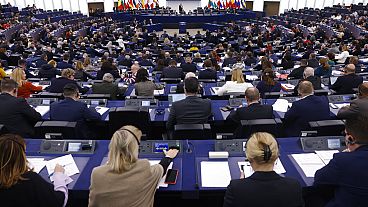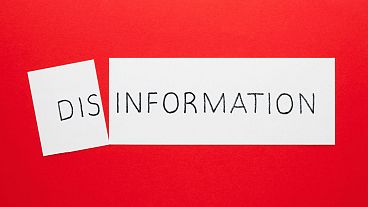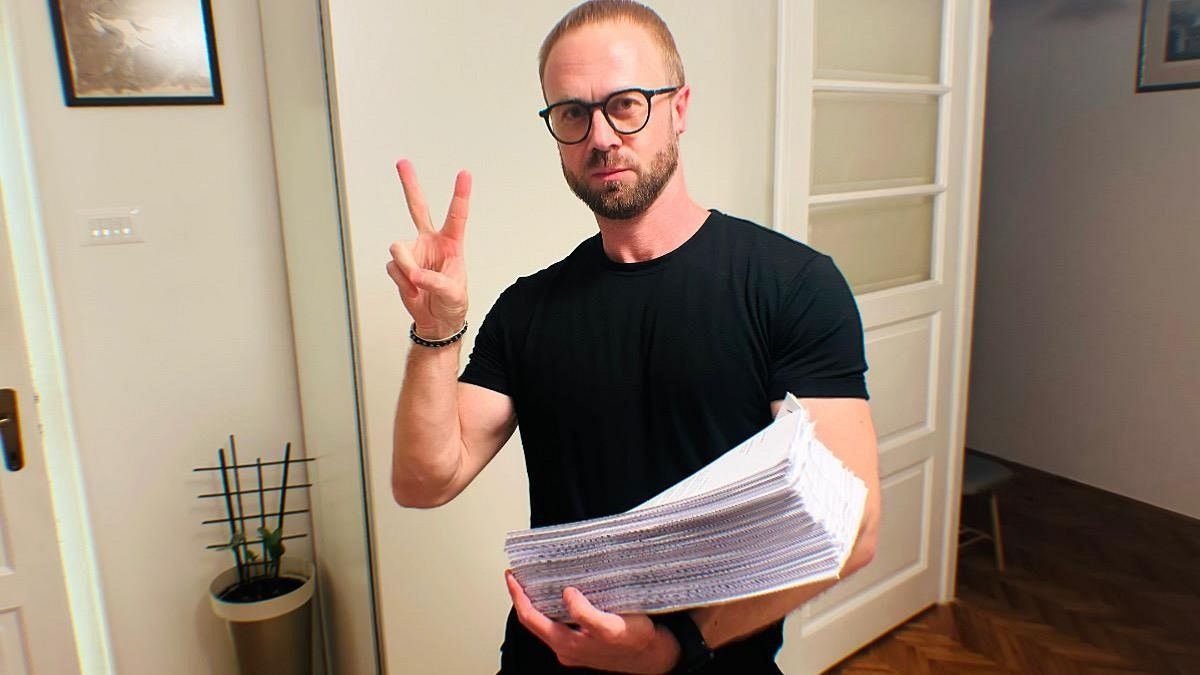Journalist Andrey Gnyot is under house arrest in Serbia for tax evasion - but human rights experts says it's a ruse to extradite him to Belarus.
Andrey Gnyot is wearing a tracking device on his ankle in an ordinary apartment in Belgrade, where he is under house arrest.
But the Belarusian journalist, activist and advertising director fears a far worse fate hangs over him if his appeal against tax evasion charges fails and he's extradited back to Belarus.
"Anyone who worked during the protests has been detained, arrested and tortured. I think that more than 50 to 100 people are still being held in Belarusian prisons,” he told Euronews in an interview. By "work" he refers to the hundreds of people who were active in protests that tried to bring down the government of President Alexander Lukashenko in 2002.
Gnyot thinks the extradition request is due to his role in the protests, and his team says the extradition request is driven by the desire of the Lukashenko regime to capture him and anyone who broadcast and posted videos of the protests.
Belgrade’s High Court has already ruled that he should be extradited to Belarus. Gnyot has made a plea to the Court of Appeal in the Serbian capital and expects a decision by 27 August. If he is sent to Belarus, he is certain of the fate that awaits him.
"Torture or death through torture. There are at least 12 cases of people who died in ‘unexpected’ circumstances. They were healthy and they were all political prisoners," he said, speaking calmly.
It's rare for European countries to extradite people to Russia, Belarus and China as they are renowned for their lack of free speech, their weak rule of law and their rejection of most democratic norms, including holding free and fair elections.
Lawyer and human rights expert Nikola Kovačević told Euronews that many European countries rarely extradite people to Russia, Belarus and China because of the very real risk of political persecution.
"Belarus' request to extradite Gnyot to Serbia is part of a ruse to capture him so he can later be tried for subverting the constitutional order. All the accusations against him have been made with the aim of making it easier for the authorities to extradite people like Andrey Gnyot," Nikola Kovačević said.
The Committee to Protect Journalists (CPJ) is campaigning for him to be released immediately.
“As a European Union candidate state, Serbia should not succumb to transnational repressions on behalf of authoritarian regimes like that of Belarusian President Aleksandr Lukashenko, a known enemy of a free press,” said Gulnoza Said, CPJ’s Europe and Central Asia programme coordinator.
Gnyot was detained in Belgrade in October as soon as he arrived in Serbia. A tax evasion charge carries up to seven years imprisonment, according to the Belarusian criminal code.
Gnyot's reports were used by Radio Svaboda, the Belarusian service of US Congress-funded broadcaster Radio Free Europe/Radio Liberty, during the protests in 2020 — and the Belarusian authorities describe the radio station as an “extremist” group.
Belarusian authorities have jailed an increasing number of journalists for their work since the 2020 protests.
Reports by Human Rights Watch and Amnesty International have extensively documented incidents of torture experienced by political prisoners in Belarus.
Belarus was the world’s third-worst jailer of journalists, with at least 28 journalists behind bars on 1 December, according to the CPJ's most recent analysis.
Serbia had no journalists behind bars at the time, except for Gnyot, who was not included in the census due to a lack of information about his journalism.












